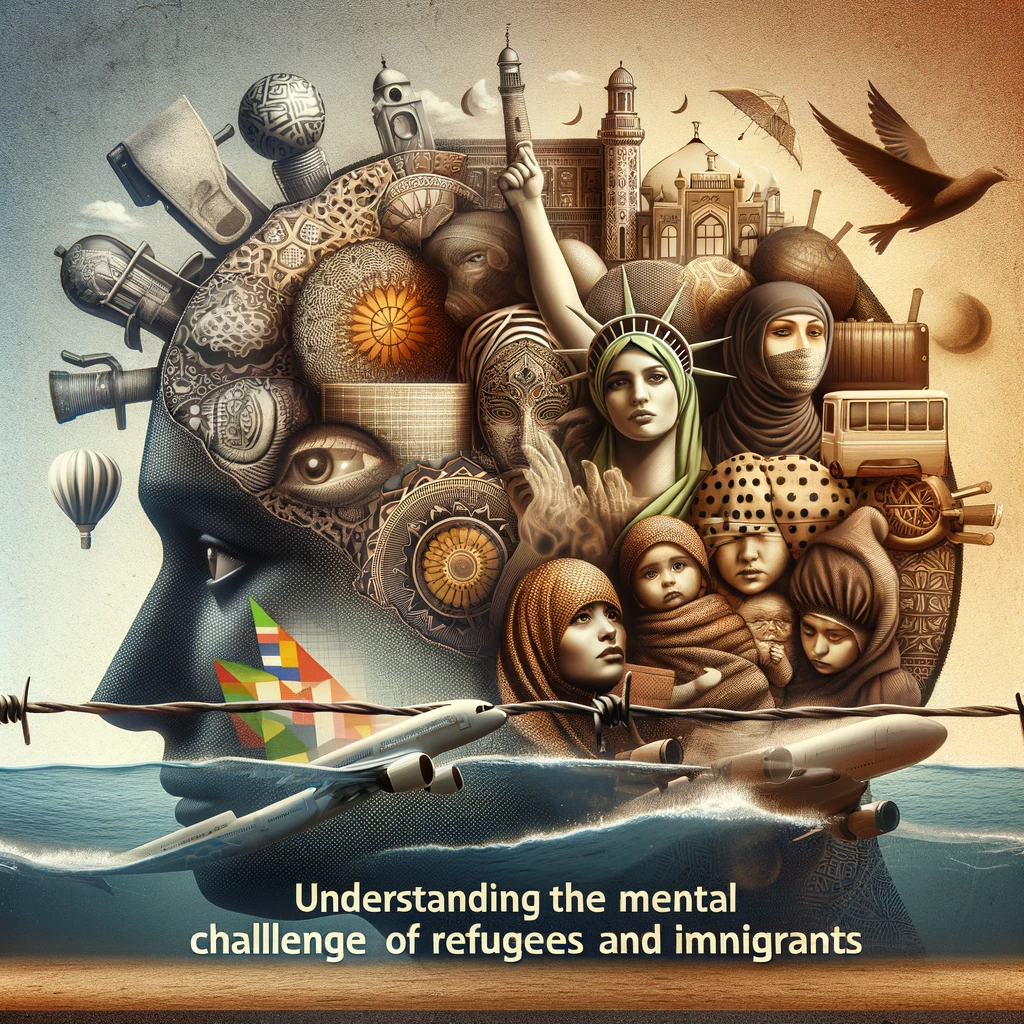A White-Passing Privileged Displaced Colombian’s Perspective
As a white-passing individual who has been displaced (being an adoptee from Colombia, South America), the experience of reuniting with my biological family, who live in poverty, has stirred profound internal cognitive dissonance within me. This emotional turmoil has been further amplified by my own periods of unemployment, coupled with feelings of societal rejection, shame, and diminished self-dignity. Their fervent aspiration to work and contribute meaningfully to society, despite being hampered by a lack of support or know-how, echoes my personal battles with unemployment and issues of self-worth. These experiences, along with other deeply emotional moments in my life, such as intense feelings of loss and disenfranchised grief, I believe, find parallels in the narratives of many refugees and immigrants. This shared emotional landscape could potentially enhance the rapport I build as a counselor.
The Multi-Layered & Chronic Stresses of Refugees and Immigrants
The videos and readings shed light on the myriad challenges refugees and immigrants grapple with, including profound feelings of shame, isolation, distrust, societal rejection, and being targeted. These challenges often give rise to a potent yet sometimes elusive yearning for a sense of belonging. This common thread of seeking acceptance, confronting both internal and external judgments, and the pursuit of belonging is something I can deeply relate to, especially when reflecting on the adoptee community. Such insights allow me to better appreciate the inherent strengths of displaced individuals, such as their resilience and drive to survive and thrive. Beneath the surface, there might be intricate layers of emotions like unresolved resentment, fear, grief, and hopelessness. These emotions can contribute to prolonged states of heightened sympathetic nervous system activity and chronic stress, which in turn might influence cognitive functions.
The Role of a Multicultural & Trauma-Informed Counselor
In my role as an educator, advocate, guide, and counselor, I recognize the pressing need to first and foremost establish safe and trustworthy spaces for refugees and immigrants. My approach gravitates towards offering a plethora of supportive validation, building genuine connections, and crafting mindful action plans tailored to their distinct circumstances. To serve effectively as a multi-faceted liaison, I believe it’s crucial to strike a balance: valuing a refugee client’s original culture, aiding their assimilation into a new culture they might feel forced into, and guiding them in nurturing a healthy lifestyle within the limitations of their uniquely extremely stressful situations. This involves a holistic approach, addressing their hierarchy of needs, ranging from basic survival to emotional well-being, all while operating through a multicultural and trauma-informed lens.
Conclusion
The counseling of refugees and immigrants requires a deep understanding of their unique mental health challenges. These challenges are often complex and multifaceted, involving language and cultural barriers, as well as the stressors associated with migration and resettlement. As counselors, it is essential to recognize these challenges and provide care that is both culturally sensitive and trauma-informed.
Source: Canadian Medical Association Journal – Common Mental Health Problems in Immigrants and Refugees
This source discusses the common mental health problems in immigrants and refugees, highlighting the challenges in mental health care for these groups, including communication difficulties due to language and cultural differences, and the impact of migration on mental health.






